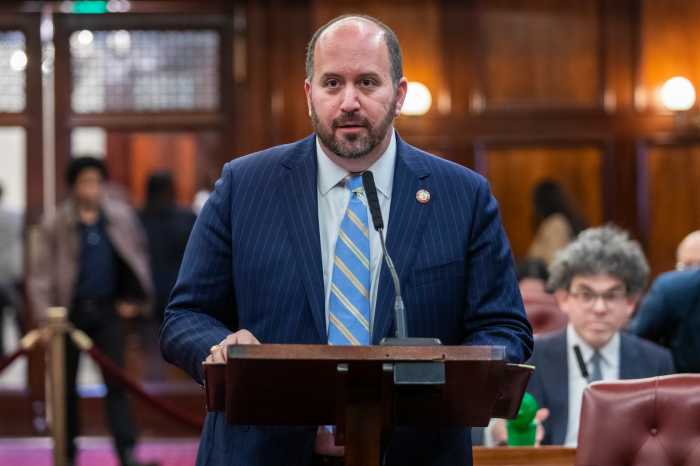The nation’s rightward shift — and the return of Donald Trump to the presidency — were not the only headlines on election night in America. Exit polls revealed the voting patterns of LGBTQ Americans, there were historic firsts in Congressional contests, and several states voted on ballot initiatives pertaining to same-sex marriage and discrimination protections.
NBC News Exit Polls showed LGBTQ Americans overwhelmingly voted for Vice President Kamala Harris: A whopping 86% of LGBTQ voters backed Harris compared to 13% who supported Trump. The vice president had the best performance by a presidential candidate among LGBTQ voters in the last four presidential elections. In 2020, President Joe Biden won the LGBTQ vote over Trump 64-27% and former Secretary of State Hillary Clinton had 77% of the LGBTQ vote compared to 14% for Trump, according to the NBC News data. In 2012, former President Barack Obama secured 76% of the LGBTQ vote, while then-GOP presidential nominee Mitt Romney had 22%.
Furthermore, the exit polls showed that just 5% of LGBTQ voters identify as Republicans, and 62% of LGBTQ respondents said they were “scared” about a second Trump term.

At the ballot box, it was business as usual for all nine queer congressional incumbents — Mark Pocan of Wisconsin, Becca Balint of Vermont, Ritchie Torres of New York, Angie Craig of Minnesota, Sharice Davids of Kentucky, Chris Pappas of New Hampshire, Eric Sorensen of Illinois, and Mark Takano and Robert Garcia of California — as they rolled to victory in their respective districts.
[Click here to read our coverage of how LGBTQ candidates and a key ballot initiative performed in New York.]
Notable races featuring LGBTQ candidates were seen in contests for open seats. None of those seats, however, were as historic as the race for the only Congressional district in Delaware. For the first time, the nation will have an out trans lawmaker: Delaware State Senator Sarah McBride, who is the first out trans state senator in the nation, is making political history all over again thanks to her successful bid for the state’s lone congressional district. McBride defeated Republican candidate John Whalen III in what was an open seat, meaning she will become the first out trans individual elected to Congress. McBride held a 58-42% edge on the day after the election.
“Thank you, Delaware! Because of your votes and your values, I am proud to be your next member of Congress,” McBride wrote on X after she won her race on Nov. 5. “Delaware has sent the message loud and clear that we must be a country that protects reproductive freedom, that guarantees paid leave and affordable child care for all our families, that ensures that housing and health care are available to everyone and that this is a democracy that is big enough for all of us.”
History was also made in the Lone Star State, where state lawmaker Julie Johnson emerged victorious in Texas’ 32nd Congressional District and became not only the first out lawmaker in Texas, but the first out lawmaker in the south. Johnson won the seat with relative ease, defeating Republican Darrell Day by more than 20 points in a district that is in the Dallas metropolitan area.
Another silver lining took shape in Wisconsin, where out lesbian Senator Tammy Baldwin eked out an extremely narrow victory in a race that was called by CNN on the afternoon of Nov. 6. Baldwin edged her GOP opponent, Eric Hovde, by a fraction of a point, 49.38-48.52%. Baldwin will be the only out LGBTQ lawmaker in the Senate after Kyrsten Sinema of Arizona and Laphonza Butler of California did not run for re-election.
“The voters have spoken and our campaign has won,” Baldwin wrote on X shortly after 5 a.m. ET on Nov. 6. “Wisconsinites chose someone who always puts them first, shows up, listens, and works with everyone to get the job done. I’m proud to head back to the Senate to keep fighting for our workers, farmers, and families that make our state great. From the bottom of my heart, thank you.”

In state races, out trans Montana State Representative Zooey Zephyr staved off a challenge mounted by Republican Barbara Starmer to gain re-election to the State Legislature for the first time, while Iowa witnessed the election of its first out trans member of the State Legislature: Democrat Aime Wichtendahl, who already made history with her previous election to the Hiawatha City Council, won a race for Iowa House of Representatives in District 80.
In other news, several states took the opportunity to protect LGBTQ rights out of fear that those rights could also be vulnerable — including marriage equality. In Hawaii, citizens approved a proposed amendment to the state constitution to repeal the State Legislature’s “power to limit marriages to heterosexual couples.” The measure passed 56-44%. Meanwhile, nearly two out of three voters in Colorado approved an amendment repealing the state’s now-defunct ban on same-sex marriage — and it needed 55% to pass.
Congress passed legislation in 2022 to protect LGBTQ marriages in case the Supreme Court moves to overturn the 2015 decision guaranteeing the right to marriage equality. The legislation, dubbed the Respect for Marriage Act, would not force states to issue marriage licenses but it would require recognition of marriages performed in states where marriage equality is the law of the land.
Further west, voters in California approved an amendment to the constitution to repeal a ban on same-sex marriage and declare marriage to be a fundamental right, drawing the support of 61% of the electorate.
Among other LGBTQ-related ballot proposals, New York State approved an amendment to the state constitution providing safeguards for abortion and LGBTQ rights.



































